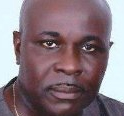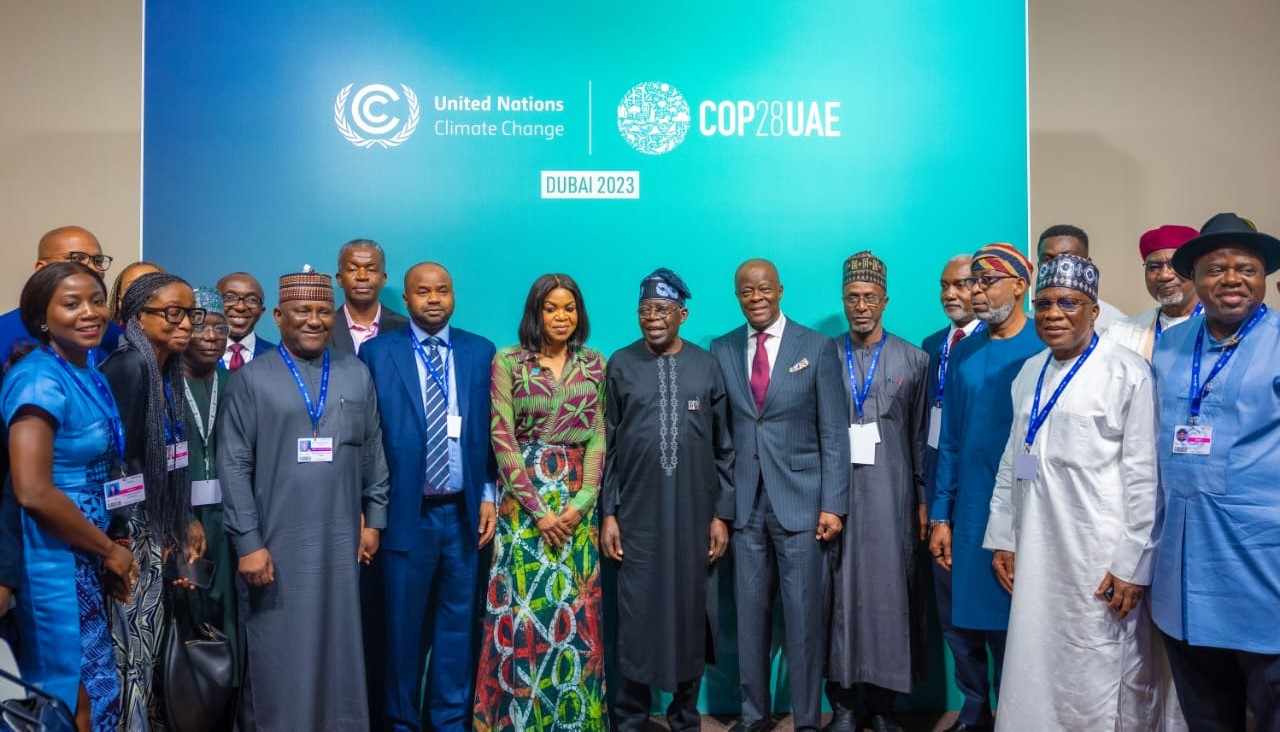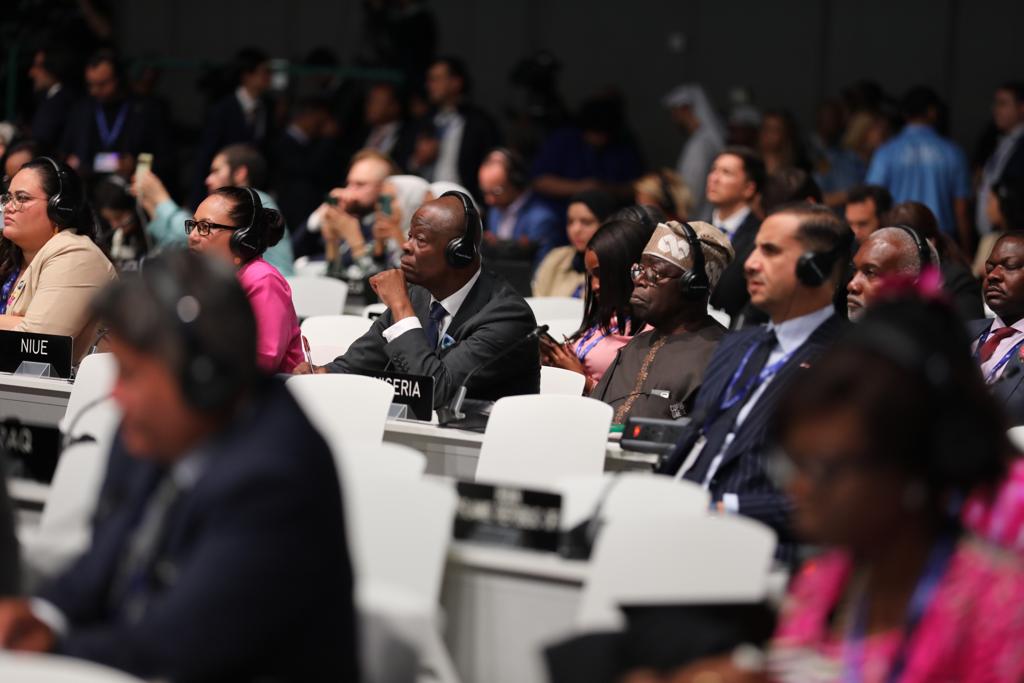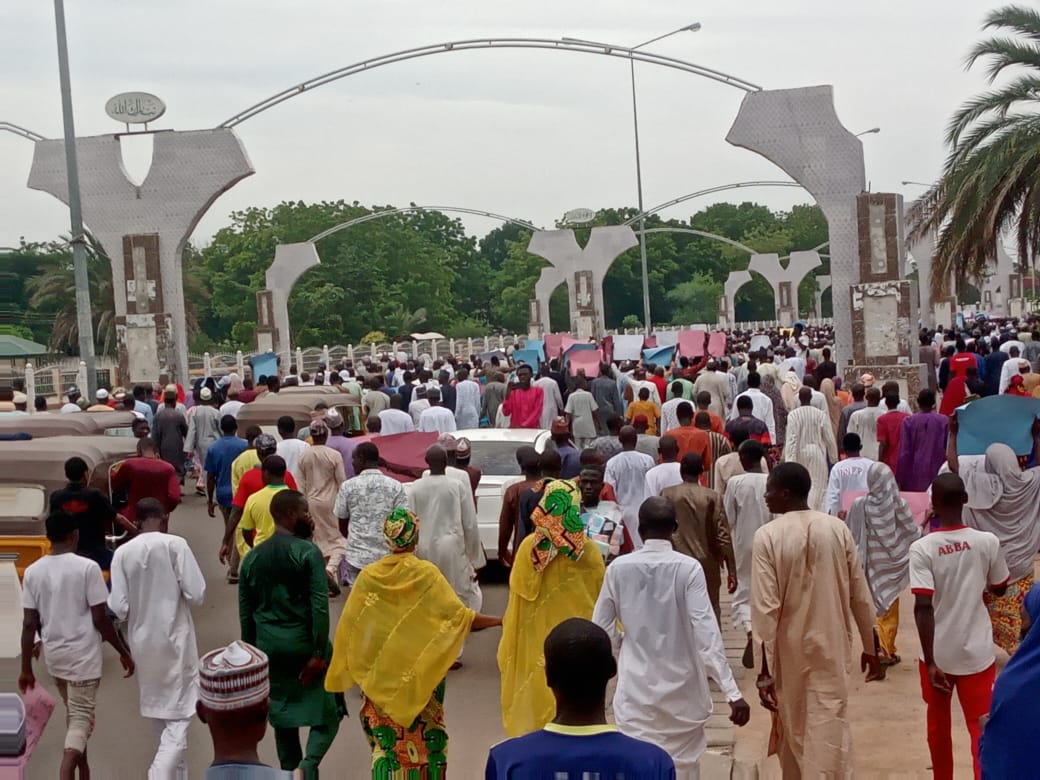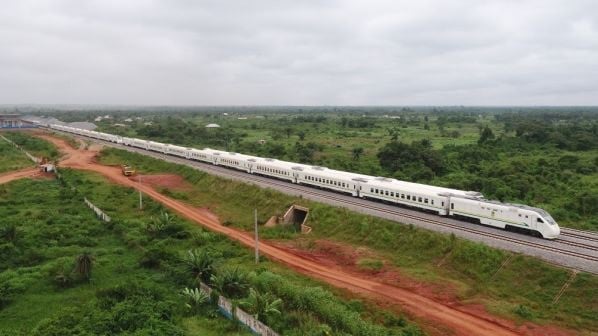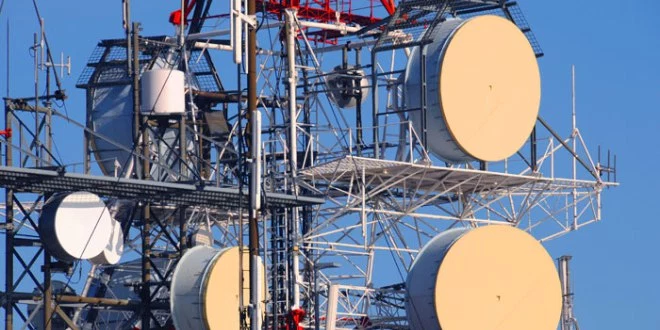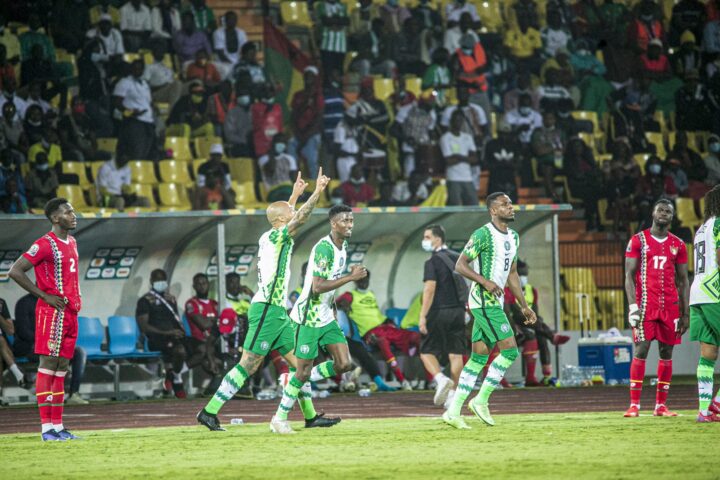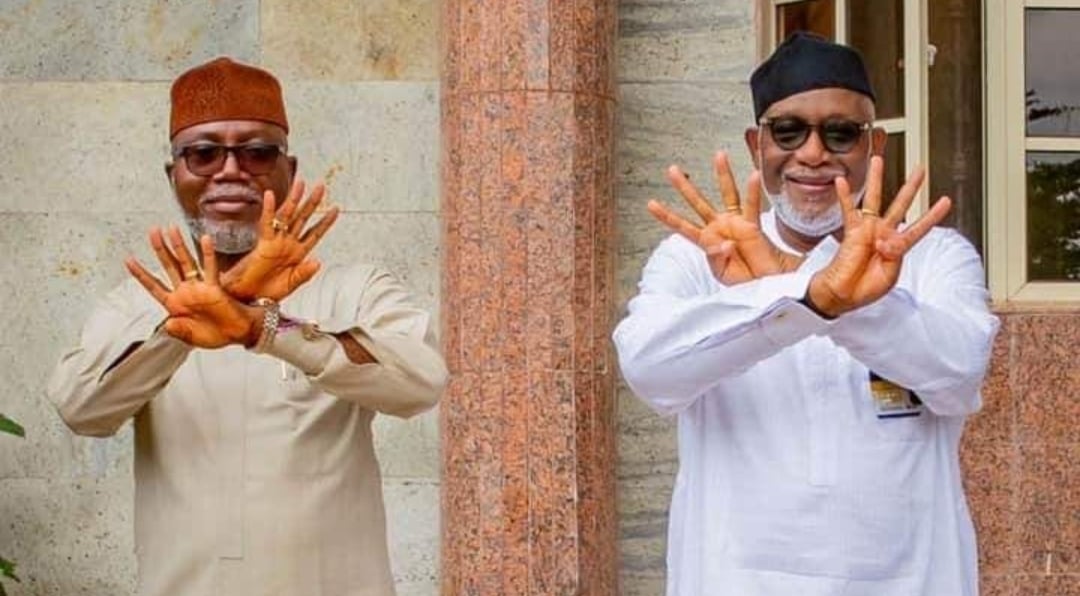President Tinubu’s 1,411 delegations to the Climate Change Conference (COP28) in Dubai has raised considerable concerns in the country, overshadowing whatever benefit that could be potentially garnered from attending such a conference. Only United Arab Emirates which had 4,409 delegates and Brazil which had 3,081 delegates had larger representatives than Nigeria, which tied in the third place with China which also has 1,411 delegates.
Temitope Ajayi, the Senior Special Assistant to the President on Media and Publicity, in an article entitled, ‘Nigeria at COP28: Separating the facts from fiction,’ sought to provide the government’s perspective on the controversy surrounding the size of the delegation. According to the media aide, “In Nigeria, like so many other countries, interested parties comprising government officials from both federal and sub-national governments, environmentalists, climate activists, business leaders, journalists and agencies of government such as the NNPC and its subsidiaries, Ministry of Niger Delta Affairs, NIMASA, and the NDDC are present in Dubai.
“Many youth organisations from Nigeria, especially from the Northern and Niger-Delta regions, whose lives and livelihoods are most impacted by desert encroachment and hydrocarbon activities, are also represented. The President of Ijaw Youth Council, Jonathan Lokpobiri, leads a pan-Ijaw delegation of more than 15 people who registered as parties from Nigeria. Among delegates from Nigeria are also over 20 journalists from various media houses,” he wrote.
The presidential aide however failed to tell us the exact number of delegates being funded by the government among the 1,411 delegates.
Advertisement
There are several issues involved in the controversy over the size of President’s delegation to the COP28 conference:
One, is the cost associated with the size of the delegation. Some papers have estimated that the number of people in the government- funded delegates to the 13-day Conference could be as high as 890. Aside from the cost of paying for international chartered flights (which the government is said to prefer over local flight operators), other costs include accommodation, per diem (estacodes) for each delegate (which some estimate could be as much as $900 per day for ministers while different rates are used for other members of the delegation that are not sponsoring themselves). There are also associated expenses like the cost of parking the presidential jet for so many days and of course sundry expenses. Given the dire financial position of the government, people are asking whether such expenditures could be justified at this time when the government is on a borrowing binge to meet even basic obligations.
Two, is that such profligate expenditures raise questions of whether the government really empathizes with the increased hardship that ordinary Nigerians are going through since Tinubu removed fuel subsidy and announced the flotation of the Naira. While the government has kept urging ordinary Nigerians to be patient with it and to ‘tighten their belts’ further, there are little indications that the government is leading by example. For instance in the 2023 supplementary appropriation bill of N2.17 trillion signed into law by the President in early November this year, there was hardly any significant item of social welfare. Rather the supplementary budget was dominated by luxury items such as the purchase of a Presidential yacht (N5bn), purchase of luxury vehicles including for the Office of the First Lady which is not even recognized by the Constitution (N6.9bn), renovation of the Official Quarters of the President and the Vice President in Lagos (8bn) and the renovation of residential quarters of Mr. President (N4bn) etc. A few days ago the Minister of the Federal Capital Territory Nyesom Wike also announced plans to build a befitting residence for the Vice President at a whopping cost of N15bn. Given these patterns of expenditures that seem to deny the dire economic circumstances of the country, not a few Nigerians are asking whether the government is deliberately mocking the suffering Nigerians or whether it is merely suffering from compassion deficit. While the government may mean well (as it claims), it is equally true that it is people’s deconstruction of the government’s intentions that counts. This is what as optics all about. And the Tinubu government has not demonstrated sufficient sensitivity to how people may perceive its patterns of expenditures in these perilous times.
Advertisement
Three, given the country’s present debt profile, the current profligacy by the government will make it even more difficult for it to get any listening ear for debt forgiveness or debt relief from its Western creditors. Despite concerns over Buhari government’s loan binge, the Tinubu government has continued in the same path of loan spree. Recently President Tinubu sought the nod of the National Assembly to borrow another $7.8billion and €100 million or $106million respectively. The World Bank has pledged another loan of $2billion, while the African Development Bank ( AfD promised to give the country a loan of $1billion. It should be recalled that last year the Debt Management Office urged the government to put a moratorium on fresh loan after pointing out that 73.5 per cent of last year’s revenue was used to service debt (currently 96% of the government’s revenue is used to service debts). Despite the warnings by the DMO, the borrowing spree continues. And with the government apparently uninterested in dispensing extravagant and frivolous expenditures, many are wondering whether it has the necessary discipline to cut down on the cost of governance and with that be in a better position to convince its creditors for debt relief or forgiveness.
Four, the size of the COP28 delegation and other wasteful expenditures at a time the government’s economic policies are yet to bear the promised fruits raise further questions about the future of messianic politics in Nigeria. Nigerian politicians come in various forms of messianic packaging. As a Presidential candidate dogged by several moral and character controversies, one of the rather ‘convincing’ arguments advanced by some of Tinubu’s supporters was that the country has tried ‘integrity’ (referring to Buhari) and it did not work and for that, Nigerians would have nothing to lose by also trying ‘it takes a thief to catch a thief’ model (turning the allegations against Tinubu on their heads). People who advanced such a view argued that many leaders said to have questionable pedigree and character (as Tinubu’s critics claimed during the campaigns) are often radicalized by power in such a way that they often perform above expectations. Another argument here is that Tinubu had accomplished all that anyone would want to accomplish materially and that since, by his own account, being the president of the country has been his life-long ambition, Tinubu would most likely be radicalized by power and would give up all the trapping of comfort he had acquired to transform the system that he is believed to understand so much. So far there is no evidence of power radicalizing President Tinubu in the mould of Murtala Mohammed as his supporters claimed . As a politician and a presidential candidate, Tinubu seemed oriented towards imperial and monarchical carriage. This is when a leader feels especially affirmed by the size of hangers-on around him. We saw this during his campaign for the presidency with his large campaign entourages (and some governors had to abandon their duty posts to be part of the campaign trails or receive him at the airports). In this sense, the size of Tinubu’s delegation to COP28 (which reminds one of the controversy surround the 120 cars in his convoy in Lagos in June this year) is nothing new. It has always been part of his style as a politician who likes to create and sustain a network of political patronages and clients. In essence, concern about the size of Tinubu’s COP28 delegation could further accelerate the current citizens’ disenchantment with democracy and messianic politics in general.
Five, it is tempting to speculate on what would happen if Tinubu decides to abandon this imperial style he has been used to – and travel lean or decides to attend conferences virtually, cut the size of his convoys, and show up in meetings in a staff bus. This, in my opinion, will be the ultimate radicalization of an otherwise prebendal politician. And Nigerians are not likely to lose sight of such radicalization. His ministers and other aides, seeing the President lead from the front, will be uncomfortable to fall out of line.
Adibe is Professor of Political Science and International Relations at Nasarawa State University, Keffi and Extraordinary Professor of Government Studies at North Western University, Mafikeng South Africa. He is also the founder of Adonis & Abbey Publishers (www.adonis-abbey.com) and publisher of the online newspaper, The News Chronicle (www.thenews-chronicle.com). He can be reached on 0705 807 8841(Text or WhatsApp only).
Advertisement
Views expressed by contributors are strictly personal and not of TheCable.
Add a comment
